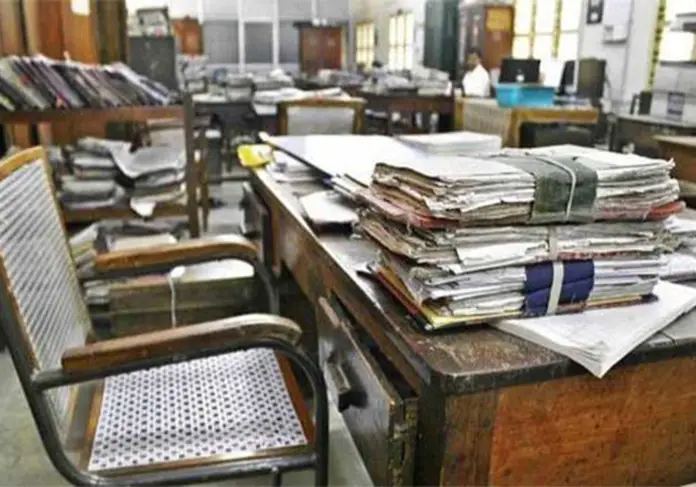The federal government has approved 15 percent of the basic pay as Disparity Reduction Allowance (DRA) for its officials from BS one to 19, according to a Finance Division notification.
The federal government had last year sanctioned the DRA as 25 percent of the basic pay.
However, following the footsteps of the federation, the Punjab government had too approved the same allowance of 25 percent of the initial basic pay scale 2017. It was called Special Allowance 2021.
All Pakistan Clerks Associations (APCA) and other employees’ organizations demanded the Punjab government to increase allowances on running basic pay instead of the initial basic pay.
“The Finance Department didn’t nod this demand as it would be a huge burden on the kitty,” said a senior treasury officer. He said that it would be difficult for the provincial government with over one million employees as compared to the federal government.
The DRA would be on the basic pay scales 2017. This allowance would be admissible to civil servants in BPS 1-19 of the federal government. Moreover, employees of the federal secretariat’s attached departments, and subordinate offices who have never been allowed additional allowance equal to or more than 100 percent of the basic pay, would be admissible for the new package.
This allowance would not be admissible to the employees of the organizations who were drawing additional allowance equal to or more than 100 percent of the basic pay. This allowance would be frozen at the level drawn on March 18, 2022, the notification said.
The Punjab government would also follow suit and soon approve such type of disparity allowance.
In the wake of these developments, an economist has asked why and who created this disparity. He said that without introducing reforms in the government sector, lavish allowances were made permissible by the government, adding that all the mighty sectors in the public sector including the civil bureaucracy, police elite, balance wing, engineering cadre and health professionals succeeded in getting such gains. Some even managed utility allowances, secretariat allowances and much more, he said.
“No one in the power corridors or policymakers ever thought while approving such huge allowance that they would generate disparity among other sectors,” said a university teacher Dr Asif Ali. While approving the executive allowance, the Punjab government was leading the federal government and now Islamabad tried to reduce this gap. An officer who drew a huge sum of amount in Punjab had to draw comparatively less in the federal capital.
No one thought to link this huge escalation in the allowance to performance. An official working in the civil secretariat was eligible for these allowances while a technocrat or say a scientist, a doctorate degree holder outside of this headquarter, was not. This created heartburning among them.
There were a good number of officers and officials working in the secretariats who were inefficient but they were drawing huge salaries besides allowances, conveyance, official residences and much more. There were some others who were efficient, hardworking but got barely paid. A director-general of an attached department has been drawing less than a section officer, a BPS 17 officer of the secretariat in some cases, told a senior Agri officer. He said that the director general (DG) had very hard duties and responsibilities other than his administrative liabilities.
The need, he said, was to link the perks with performance, otherwise, there would be disparity and counter-disparity.
Has the government taken any emergency measures to address inequality, disparity or poverty still prevalent in many of the public sector organizations let alone common citizens? The answer would be no, the officer stated.
Fakhar Zaman, a UK graduate, said that the responsible ways of public affairs and administration of public resources had been summarized in the Council of Europe’s principles of good governance. This was seen nowhere in this society and so was good governance. There was a dire need to take initiative to counter this terrible inequity among the lines.
He said that in the past, police were given huge pay raise but its performance could not be enhanced. Other than civil, police, prisons officers who drew heavy allowances, the doctors too got health professional and non-practicing allowance, engineers too got such allowances but their performance could not be enhanced. The government, Zaman suggested, instead of blessing all across the board, should link these perks with the performance of officers. Otherwise, he warned, the bandwagon of such DRAs would usurp the cash-strapped kitty.
Bring reforms in the services, rationalize working of offices and officers, do right-sizing and get rid of the deadwood, then award such allowances to the efficient employees, he proposed. Otherwise, he said that those suffering disparity would start agitations, sit-ins, strikes, pen-downs at the cost of office work and service delivery. The policymakers should bring forth a solution once and for all, he held.







